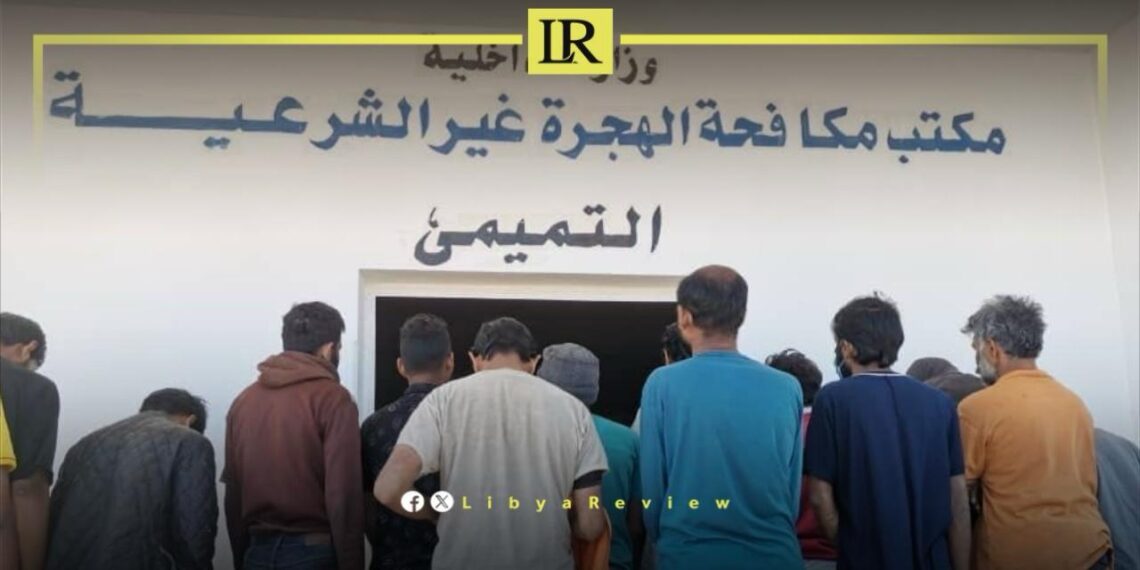On Sunday, Libyan Anti-Illegal Immigration Agency, Al-Tamimi branch, announced the deportation of 95 migrants to both Egypt and Pakistan.
According to the media office of the Agency, 20 Pakistani migrants were handed over to the Qanfouda Shelter Centre for deportation via Benghazi International Airport.
Additionally, 75 Egyptian migrants were deported through the Imssaed land border crossing.
The operation was carried out in accordance with the directives of the agency’s chief, Brigadier Nouri Al-Saadi, to combat and eliminate the phenomenon of irregular migration, as stated in the statement.
Last month, the Libyan Interior Ministry’s Anti-Illegal Immigration Agency repatriated 350 Egyptian migrants who had unlawfully entered Libya. Colonel Haitham Ammar, the Spokesperson for the agency, announced the initiation of this repatriation process, indicating that this is part of a series of deportation operations planned for the near future.
During a press briefing at the agency’s headquarters, Colonel Ammar shed light on Libya’s rigorous efforts to control the influx of irregular migrants. He revealed that in the year 2023 alone, Libya has managed to repatriate a total of 23,361 migrants back to their home countries, with the majority being from Nigeria. These migrants encompass a diverse array of nationalities from across Africa and Asia, attracted by Libya’s extensive and often unguarded borders.
Libya has been in chaos since a NATO-backed uprising toppled longtime leader Moammar Gaddafi in 2011. The county has for years been split between rival administrations.
The ongoing political fragmentation and lack of centralised authority have turned Libya into a pivotal transit hub for migrants aiming to reach European shores. It thereby intensifies the challenges associated with immigration. The recent repatriation efforts by Libyan authorities underscore a proactive approach to mitigating the complexities surrounding unwanted migration amidst the country’s enduring political and security challenges.
The conflict has led to a significant humanitarian crisis in Libya, with thousands of people killed, and many more displaced. Migrants and refugees using Libya as a transit point to Europe have also faced dire conditions.
The planned elections for December 2021 were delayed due to disagreements over election laws and the eligibility of certain candidates. This delay has raised concerns about the feasibility of a peaceful political transition.
Despite the ceasefire, security remains a significant concern with sporadic fighting and the presence of mercenaries and foreign fighters. The unification of the military and the removal of foreign forces are crucial challenges.


